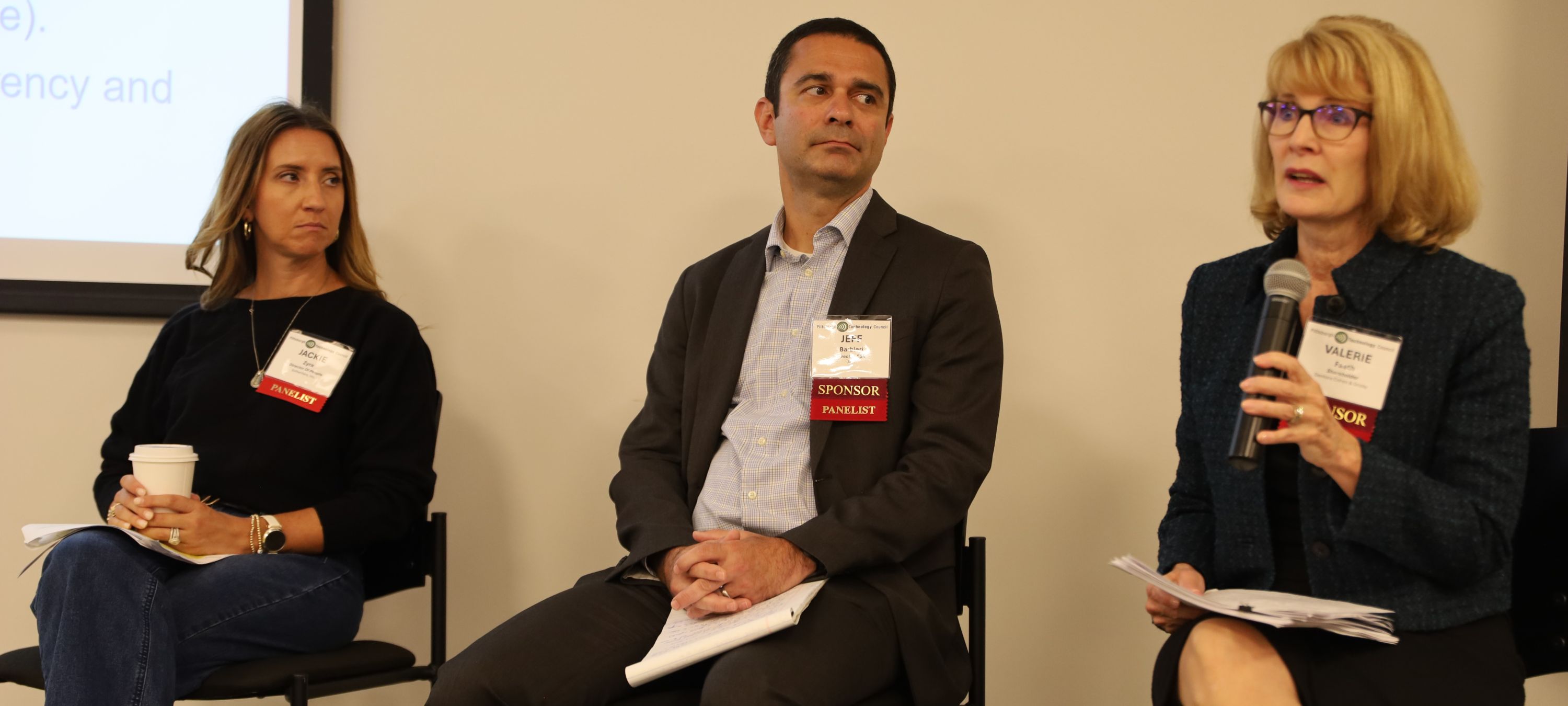Winning Talent Together: Turning Pay Transparency into Talent Advantage
by Sheena Carroll

Valerie Faeth opened the conversation by putting the legal stakes front and center.
“Understanding where your employees are—and the laws that apply—is critical,” she said.
From multi-state regulations to local ordinances, companies face a complex patchwork. Audits of pay ranges and job descriptions are essential for preventing disparities and costly litigation. She shared cautionary tales to underscore that transparency without preparation can backfire. Training managers and recruiters on consistent messaging is equally vital.
“It’s not about a one-size-fits-all approach,” Valerie added. “Context matters, and geographic nuances can’t be ignored.”
From the investor lens, Jeff Barbieri explored how pay equity intersects with ESG priorities.
“Investors are paying attention,” he said.
Transparent pay practices can reduce gender gaps, foster trust, and even become a recruiting advantage, but they require careful implementation. Jeff emphasized the importance of clearly defined salary bands, thoughtful communication, and leveraging transparency as a strategic tool rather than a box to check. Pay equity audits, done with legal prudence, can protect the organization while providing valuable insights into workforce dynamics.
On the HR side, Jackie Zyra of Soft Writers brought the discussion to everyday reality. She described transparency as a double-edged sword: while it builds trust, it inevitably sparks questions from employees. She explained that preparation is the key. Robust salary structures, manager education, and a focus on development conversations help steer discussions toward growth rather than comparisons.
“Employees want to understand their path forward, not just the numbers,” she said.
SoftWriters' Jackie Zyra Shares HR Insights at Pittsburgh Technology Council Event
Throughout the panel, a central theme emerged: transparency works best as a coordinated effort that blends legal, ethical, and practical considerations. Clear communication, a well-articulated compensation philosophy, and a holistic view of total rewards help organizations navigate this complex landscape. As laws evolve and market pressures grow, companies that approach pay transparency thoughtfully will not only comply, they’ll also gain a competitive edge.